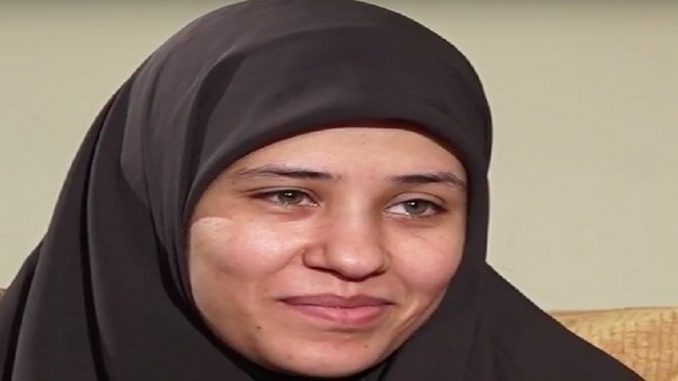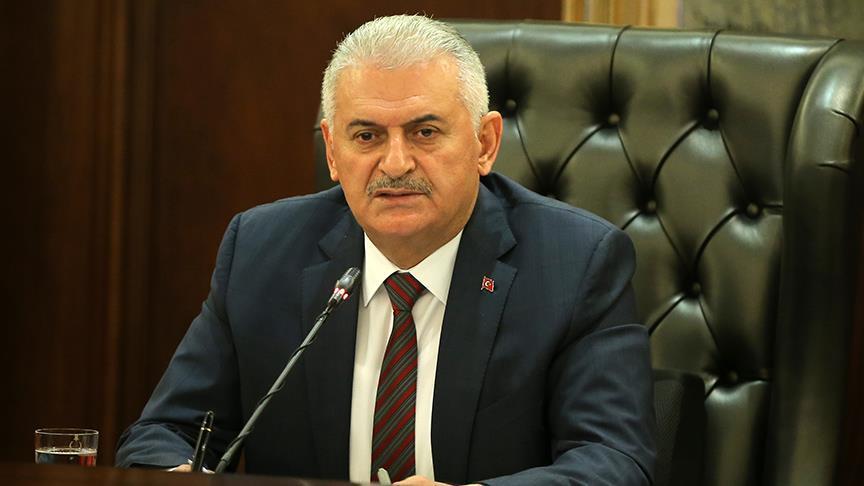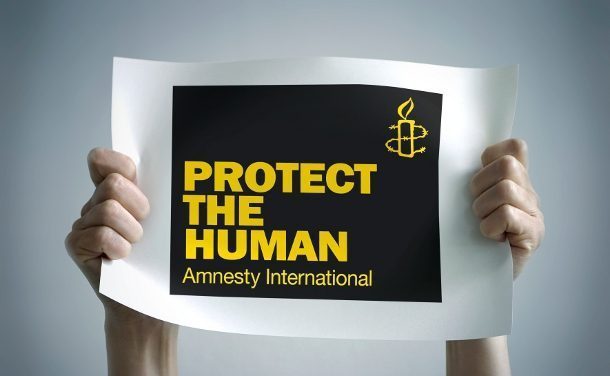
The BBC published last week a short documentary and report highlighting what it said were cases of enforced disappearances and torture carried out by security forces since Abdel Fattah al-Sisi came to power in 2014.
The report came weeks before al-Sisi is to stand for re-election virtually unopposed after opponents halted their campaigns and a top challenger was jailed.
The report criticized Egypt’s human rights record and reporting that political opponents had been “disappeared” by Egyptian authorities
Orla Guerin’s report, entitled “The Shadow Over Egypt,” had struck an ominous tone: “Egypt will elect a president next month. Opponents have been rounded up. Many have been jailed, tortured or disappeared.”
One of those stories was the story of 23-year old Zubeida whose mother said that her daughter had “forcibly disappeared.”
According to her family, she and her mother had been detained and tortured by the Egyptian government after participating in protests.
Following their release, they were said to have disappeared altogether last April: Zubeida’s mother claimed that armed and masked men showed up at the house and abducted her after throwing her into a police vehicle.
“I have been trying to find Zubeida for 10 months,” she says, her eyes wet with tears. “Every day I die a hundred times. Our entire family has been destroyed, all six of us – her siblings and me – all destroyed. We wish we were dead.”
The report reads Zubeida’s mother is in no doubt about who is responsible for her daughter’s disappearance.
“We know it’s the police,” she says.
“Neighbors told us that armed and masked men came in a police vehicle and took her away in a minibus. They had been to our old house, inquiring about her, several times,” Zubeida’s mother said.
Zubeida had her brother’s mobile and managed a quick call to a relative, according to her mother. “He could hear the officer insulting her and then the phone was switched off.”
For mother and daughter, the trouble started years earlier.
They were just passing by a protest in 2014, says Um Zubeida, and were arrested – in the wrong place at the wrong time.
They were convicted of several offences including attending a banned demonstration. Zubeida’s mother says they spent seven months in jail but were later acquitted.
Her account of what happened during their initial interrogation is chilling but all too familiar to lawyers and human rights campaigners in Cairo.
“For 14 hours, they kept beating us, and insulting us,” she says. “They stripped us and electrocuted us. They wanted us to confess to things that we had not done like planning to blow up a hotel and having weapons. I heard Zubeida’s voice screaming, ‘help me, Mother’. I couldn’t see her but I told her, ‘Don’t be afraid’.”
Zubeida’s mother says she refused to confess – though they threatened to rape her daughter in front of her
After she and her daughter were released from prison, they tried to rebuild their lives. Zubeida was studying commerce and dreaming of opening her own small business. She went out to buy shoes on 15 July 2016 and disappeared – for the first time.
“The car she was in was stopped at a police checkpoint,” says Zubeida’mother, “And everyone was taken out. She gave my mobile number to a bystander and asked him to call me. By the time I arrived the police had gone.”
Zubeida was dumped by the roadside on the outskirts of the city 28 days later. Her mother describes her daughter’s return in a halting voice – as if each word is swollen with pain.
Zubeida’s mom said, “Someone found her and called us. She was blindfolded and her hands and legs were tied. When we brought her home, her abaya was torn. She had no underwear underneath it. I went with her to the bathroom to help her change and to wash.”
“I found cuts on her body and marks of electrocution. I was shocked when she told me that they assaulted her. They had done to her everything that would anger God. Everything, “according to the BBC report.
Her mom said that Zubeida was a changed girl – no longer friendly and sociable. “She didn’t want to see people,” her mother says. “She tried to isolate herself. She wasn’t happy like before. She started hiding under the bed, screaming. We had to take her to a psychiatric hospital.”
It was when she left the hospital, for a family wedding, that she lost her freedom for the second time.
The report reads, “Her mother now seeks comfort in Zubeida’s bedroom, which is like a shrine. Everything is just as she left it last April as if the young woman had been gone for a few hours, not almost a year.”
Many families of the disappeared – and there are many – are too frightened to speak out, said the report. Despite the risks, Um Zubeida refuses to be silenced, even though her daughter has disappeared not once but twice.
Zubeida’s mother said, “I wish they would take me, and let her go,” she says. “Take me, arrest me instead. What danger might we pose to those in power? If my daughter is disappeared and they’ve taken her and tortured her, how can I not speak out? Even if my words lead to my hanging, I will still speak.”
It is worth to mention that Zubeida’s mother was arrested after her testimony on the BBC report on the enforced disappearance of her daughter Zubeida.
In response to the BBC report, Egypt’s State Information Service (SIS), called for Egyptian officials and prominent individuals to boycott the British Broadcasting Corporation (BBC) after a report on human rights it said was “flagrantly fraught with lies”.
Egypt’s State Information Service, which runs its foreign press centre, called on “all Egyptian officials and sectors of the Egyptian elite wishing to do so, to boycott conducting media interviews and meetings with BBC correspondents and editors until the BBC issues a formal apology.”
SIS also asked that the BBC publish a statement it had prepared “refuting the professional errors and violations as well as the allegations on the situation in Egypt.”
A spokesperson for the BBC said, “We are aware of the reports about this BBC story on Egyptian TV and of the comments of the head of the State Information Service. We stand by the integrity of our reporting teams.”
In the same context, during a speech before the 37th Human Rights Council,Egyptian Minister of Foreign Affairs Sameh Shoukry pointed to the BBC report saying,”It is, however, regretful to notice lack of professionalism in the performance of some media outlets, which base their coverage on fabricated sources, for political purposes or in search of scoops.”
It is not the first time and it seems that it will not be the last
There has been a rise in the number of people going missing at the hand of the security services in Egypt, according to human rights activists in the country.
In August 2017, the Egyptian Commission for Rights and Freedoms announced that it documented the enforced disappearance of 378 individuals within a year, the whereabouts of 87 of whom are still unknown.
This was announced in the organisation’s report, issued on the International Day of the Victims of Enforced Disappearances, which was marked on August 30.
The report states that 378 individuals, including four women, were forcibly disappeared in Egypt between 1 August 2016 and mid-August 2017.
According to the report, 87 people are still forcibly disappeared, while the rest have been located, some have since been charged.
The Egyptian authorities repeatedly deny the cases of “enforced disappearance” in the country.
Ezzat Ghonim, director of the Egyptian Coordination for Rights and Freedoms, based in Cairo, said in an interview in 2017 that he was concerned about “the continuation of the phenomenon of enforced disappearance,” and called for “the rule of law and the cessation of these violations.”
“The issue of enforced disappearance in Egypt has been politicized and used as a tool for political intrigue, yet it is not true,” said Said Abl Al-Hafiz, president of the Forum for Development and Human Rights Dialogue (non-governmental organisation).
Enforced disappearance, as defined by international human rights law, means that a person is abducted or imprisoned secretly by a State, political organisation or a third party, with the mandate or support of a State, for the purpose of placing the victim outside the protection of the law.



